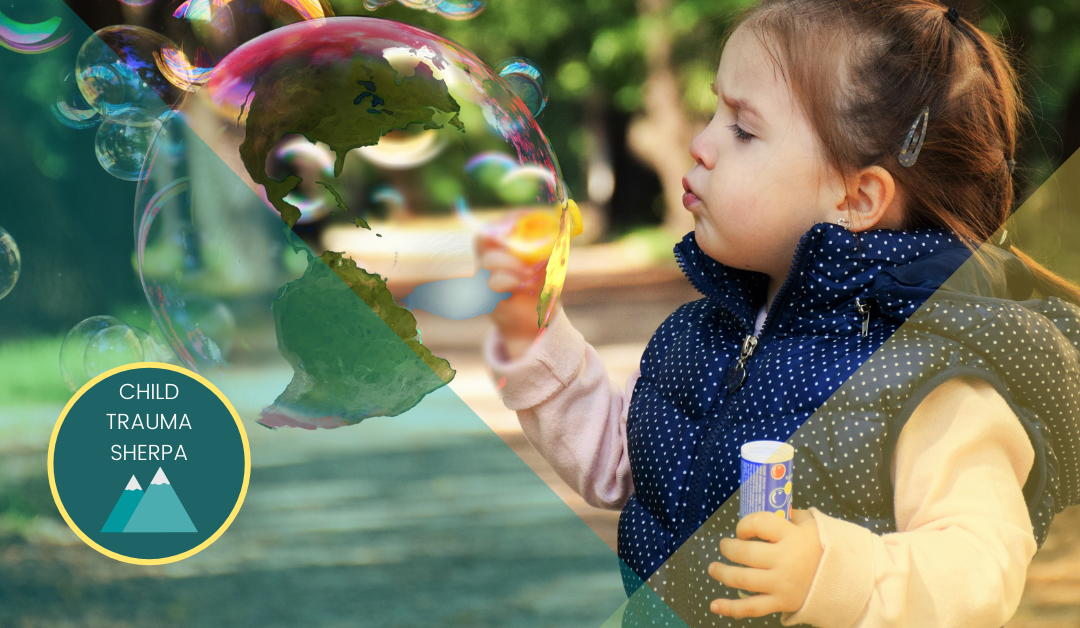Plus Tips for Parents and Camp Counselors
Summer camp is often viewed as something fun and exciting for most parents and children. However, for children with trauma, it can be difficult, or even retraumatizing, if trauma-informed care is not employed by camp leaders.
Why Trauma-Informed Care at Summer Camp Matters
Many adults can be quick to dismiss small complaints or issues that children with trauma have. While it may seem like a small issue to an adult, a dismissal of an issue may reinforce a child with trauma’s belief that the adults in their life do not care about them. This is why trauma-informed care at camp, or any place that works with children, is extremely important.
What is Trauma-Informed Care?
Trauma-informed care is when caregivers understand that everyone has different experiences, including traumatic ones, and work to create an environment where people feel safe, heard, and empowered to make choices.
Trauma-informed care is based on building trust between you and the child. When a child can trust the adults in their life, that is when you see negative behaviors begin to dissipate and positive behaviors take their place.
Summer Camp: What Parents Should Do
Parents of adopted children with trauma should do a few things to help their child enjoy their summer camp experience. First, research potential summer camp options. Speak with other parents of children with trauma and get their recommendations. Also look at online reviews.
Once you have narrowed down your choices, contact the camps and ask about whether they employ trauma-informed care. If they don’t, don’t immediately cross it off your list. You’ll find a lot of people still haven’t learned about trauma-informed care. If they don’t already know about it, ask if they would be willing to learn about it. And of course, whether they already employ trauma-informed care or not, be sure to go over specifics for your child with camp leaders to help ensure that your child has a more enjoyable experience.
Keep in mind, however, that there will be bumps along the road. Every child is different, including children with trauma, and it will take camp leaders a small amount of time to get used to your child and their specific needs.
Summer Camp: What Camp Counselors and Leaders Should Do
First, listen to any advice or knowledge that parents of children with trauma have for you with an open mind. Don’t just dismiss what they have to say, even if you have already been trained in trauma-informed care. You might learn some important information about the child or children who will soon be under your care.
Second, camp leaders should focus on proactive techniques. These techniques need to focus on building positive, safe relationships which help build trust between you and the child. This trust is what helps you with behavior management.
Building those relationships should start from the moment the child arrives at camp. Learn each child’s name and start each session with team and friend-building activities. Counselors should ask campers how they are doing and find out what is upsetting a camper if they are exhibiting unwanted behaviors.
When a counselor notices behavior that seems unusual or unsafe, they should start by getting down on the camper’s level and help them calm down or de-escalate. Once the child is calm, find out what is causing the behavior or what is upsetting them. Make sure that you listen without judgment. Once you have isolated the problem, work with the child to resolve the issue. It may be a simple fix, or it could be figuring out why the behavior is unsafe and learning safe behaviors for the future.
In other words, trauma-informed care means that camp leaders listen to children and include them in the behavior management process. Kids want to know they are being listened to and share their feelings, even if they say they don’t want to.
Making a Difference
Trauma-informed care can make a real difference at camp, not just for children with trauma but all children at camp! Understanding behaviors from a position of trust can benefit children no matter their past experiences. It allows camp staff to see the whole camper, not just their behavior, allowing each child to succeed in camp relationships and activities.
It is about empowering every child and helping them to feel safe and happy. When children feel safe, happy, and empowered, they can truly begin to heal and flourish!


